By Beth Daley
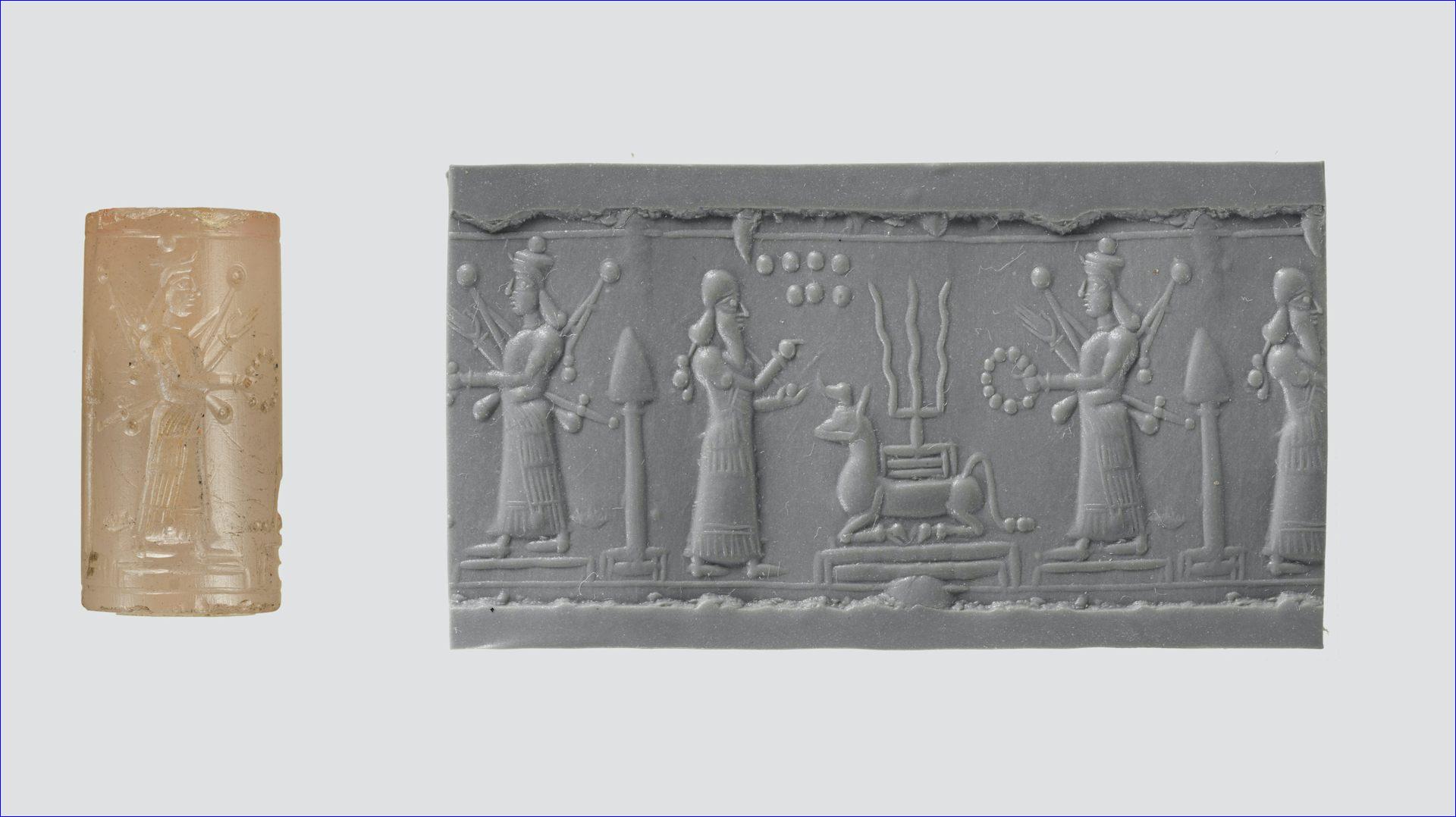 The earliest form of the signature came from ancient Iraq in the form of cylinder seals. Mesopotamians, the ancient inhabitants of the land between the Euphrates and Tigris rivers, are credited for many firsts in human history, including writing, urbanism and the state. Among these inventions, cylinder seals are perhaps the most distinctive but least known.
The earliest form of the signature came from ancient Iraq in the form of cylinder seals. Mesopotamians, the ancient inhabitants of the land between the Euphrates and Tigris rivers, are credited for many firsts in human history, including writing, urbanism and the state. Among these inventions, cylinder seals are perhaps the most distinctive but least known.
 Discontent is growing among Iraq's Christian community. Many cite years of marginalization, poor services, and doubts over whether their parliamentary quota seats still truly represent them. Out of 329 total seats in the Iraqi Parliament, five are reserved for Christians, distributed across Baghdad, Nineveh, Kirkuk, Dohuk, and Erbil.
Discontent is growing among Iraq's Christian community. Many cite years of marginalization, poor services, and doubts over whether their parliamentary quota seats still truly represent them. Out of 329 total seats in the Iraqi Parliament, five are reserved for Christians, distributed across Baghdad, Nineveh, Kirkuk, Dohuk, and Erbil.
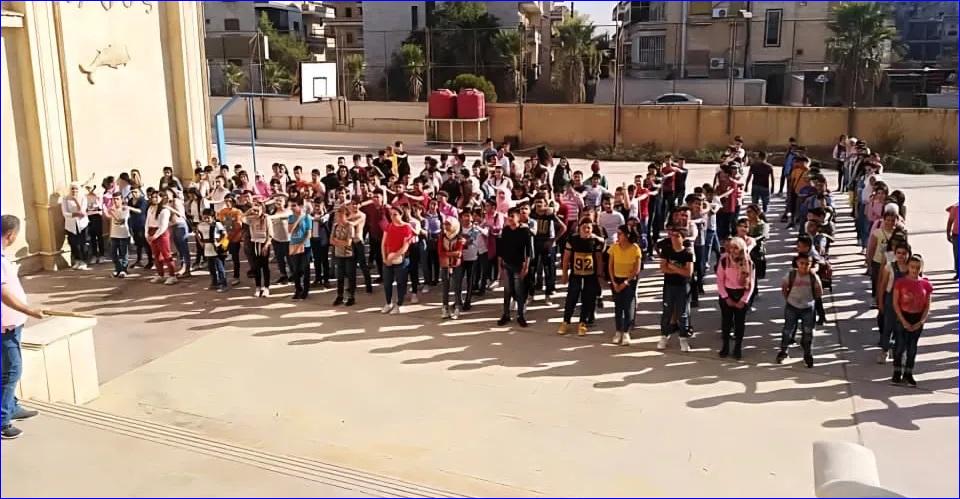 Church schools in northeast Syria will keep teaching the Syrian Ministry of Education curriculum after the Council of Churches and the Autonomous Administration's Education Authority reached an agreement, ending a dispute over education policy.
Church schools in northeast Syria will keep teaching the Syrian Ministry of Education curriculum after the Council of Churches and the Autonomous Administration's Education Authority reached an agreement, ending a dispute over education policy.
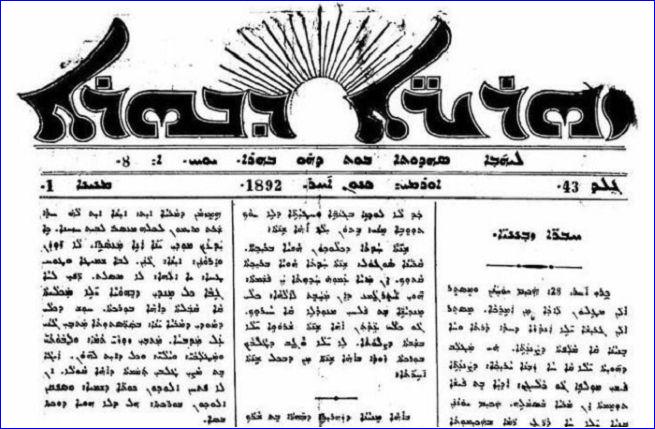 On 1 November 1849, in the city of Urmia in contemporary Iran, the first Assyrian-language newspaper in history, Zahrire d'Bahra "Rays of Light", was published. Printed in the Assyrian language, it covered a wide range of topics for many years.
On 1 November 1849, in the city of Urmia in contemporary Iran, the first Assyrian-language newspaper in history, Zahrire d'Bahra "Rays of Light", was published. Printed in the Assyrian language, it covered a wide range of topics for many years.
By Dr. John Kaninya
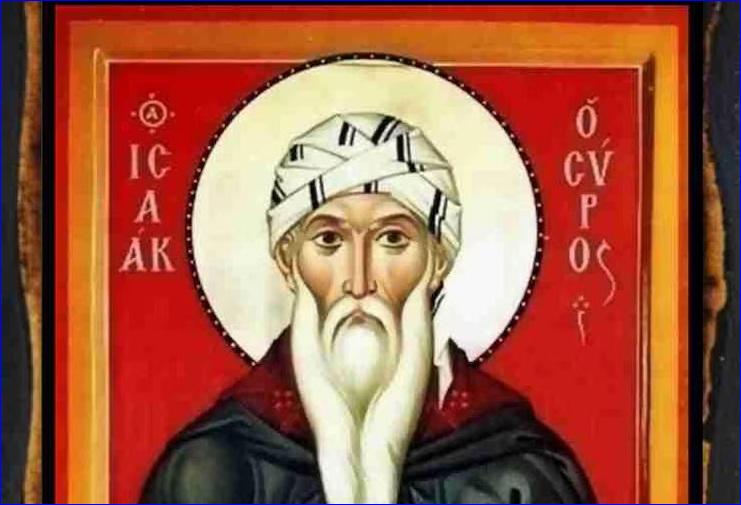 (AINA) -- From the heart of ancient Mesopotamia, the land of prophets and sages, arose one of the most profound spiritual voices of all time -- Saint Isaac of Nineveh (also known as Isaac the Syrian). Born in the region that once formed the cradle of civilization, he became a radiant beacon of divine wisdom, humility, and compassion.
(AINA) -- From the heart of ancient Mesopotamia, the land of prophets and sages, arose one of the most profound spiritual voices of all time -- Saint Isaac of Nineveh (also known as Isaac the Syrian). Born in the region that once formed the cradle of civilization, he became a radiant beacon of divine wisdom, humility, and compassion.
 The sounds of northern Syria came alive at the Damascus Opera House on Thursday evening, as musicians and vocalists from across the region blended Arabic, Kurdish, and Syriac folk traditions in a vibrant celebration of cultural diversity.
The sounds of northern Syria came alive at the Damascus Opera House on Thursday evening, as musicians and vocalists from across the region blended Arabic, Kurdish, and Syriac folk traditions in a vibrant celebration of cultural diversity.
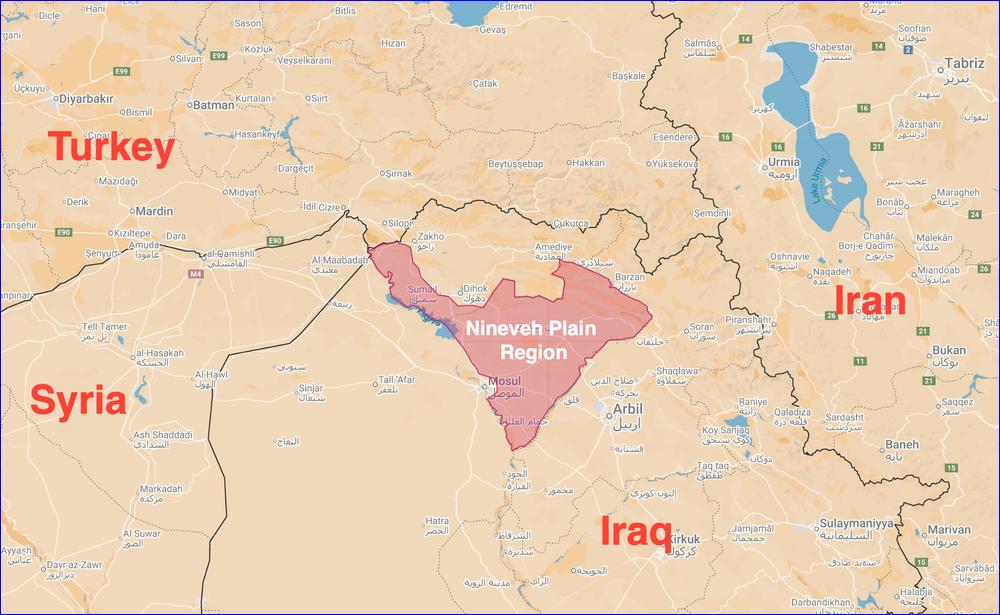 The future of Iraq's Nineveh province has been a subject of debate and competing initiatives since the fall of Saddam Hussein in 2003. Home to around 3.7 million people, Nineveh is Iraq's second most populous and third largest province. Often described as a miniature Iraq, it mirrors the country's ethnic and religious mosaic since the construction of the country by the British in the 1930s.
The future of Iraq's Nineveh province has been a subject of debate and competing initiatives since the fall of Saddam Hussein in 2003. Home to around 3.7 million people, Nineveh is Iraq's second most populous and third largest province. Often described as a miniature Iraq, it mirrors the country's ethnic and religious mosaic since the construction of the country by the British in the 1930s.
 Representatives from Australia's leading Assyrian institutions met recently with Tony Burke MP, Minister for Home Affairs, Immigration and Citizenship, and Chris Bowen MP, Minister for Climate Change and Energy, to discuss the ongoing humanitarian challenges facing displaced Assyrians in the Middle East.
Representatives from Australia's leading Assyrian institutions met recently with Tony Burke MP, Minister for Home Affairs, Immigration and Citizenship, and Chris Bowen MP, Minister for Climate Change and Energy, to discuss the ongoing humanitarian challenges facing displaced Assyrians in the Middle East.
 The Assyrian Democratic Party has issued a forceful condemnation of recent measures taken by the Autonomous Administration in northeastern Syria, describing the closure of Christian schools and imposition of new curricula as a violation of indigenous rights and a threat to the region's cultural diversity.
The Assyrian Democratic Party has issued a forceful condemnation of recent measures taken by the Autonomous Administration in northeastern Syria, describing the closure of Christian schools and imposition of new curricula as a violation of indigenous rights and a threat to the region's cultural diversity.
 Cleveland -- Two Assyrian brothers, Dr. Rabi Hanna and Dr. Gabi Hanna, have been recognized by Crain's Cleveland Business as notable leaders in healthcare technology for their pioneering work in cancer treatment. The Hanna brothers, who immigrated to the United States from Syria, were honored for their contributions through their company, Lamassu Biotech, a clinical-stage biopharmaceutical firm.
Cleveland -- Two Assyrian brothers, Dr. Rabi Hanna and Dr. Gabi Hanna, have been recognized by Crain's Cleveland Business as notable leaders in healthcare technology for their pioneering work in cancer treatment. The Hanna brothers, who immigrated to the United States from Syria, were honored for their contributions through their company, Lamassu Biotech, a clinical-stage biopharmaceutical firm.
By Elias Turk
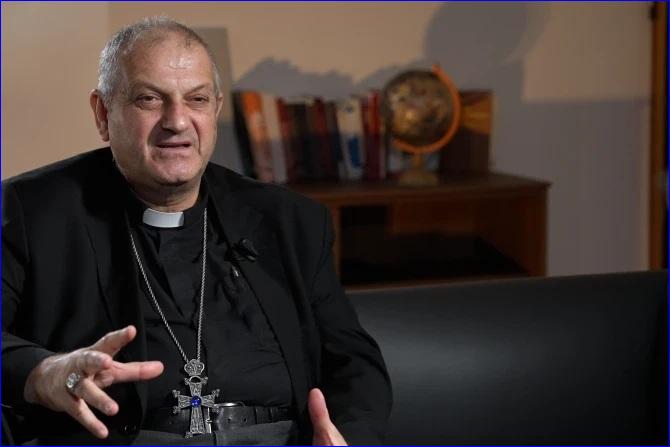 (CNA) -- The archbishop of Homs for the Syriac Catholics, Jacques Mourad, said Islamic-Christian dialogue in Syria is facing a challenge arising from the official stance of Muslim sheikhs, who refuse to open the door to meeting and dialogue with other communities.
(CNA) -- The archbishop of Homs for the Syriac Catholics, Jacques Mourad, said Islamic-Christian dialogue in Syria is facing a challenge arising from the official stance of Muslim sheikhs, who refuse to open the door to meeting and dialogue with other communities.
By Ablahad Hanna Saka
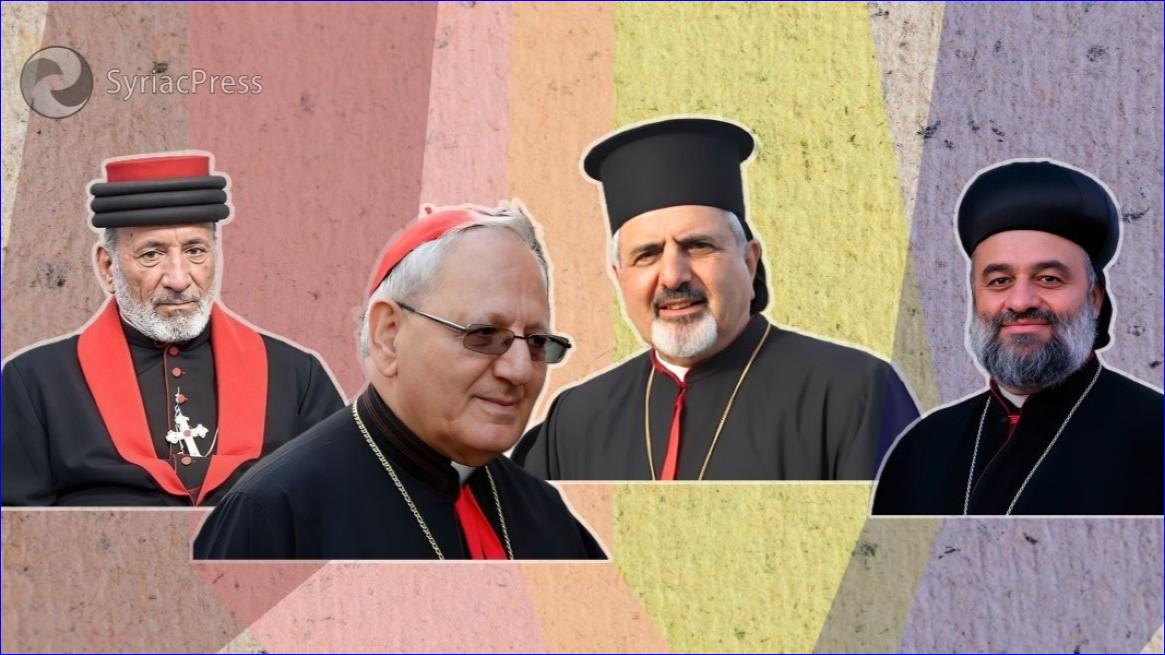 Since the early 20th century, particularly after the ill-fated 1923 Treaty of Lausanne for our people, Eastern Christians, especially the Assyrian people, have lived in a state of absolute subordination and a deep identity crisis. This struggle has been between their historical national belonging and the identities imposed upon them by the political regimes that came to dominate the region.
Since the early 20th century, particularly after the ill-fated 1923 Treaty of Lausanne for our people, Eastern Christians, especially the Assyrian people, have lived in a state of absolute subordination and a deep identity crisis. This struggle has been between their historical national belonging and the identities imposed upon them by the political regimes that came to dominate the region.
 The earliest form of the signature came from ancient Iraq in the form of cylinder seals. Mesopotamians, the ancient inhabitants of the land between the Euphrates and Tigris rivers, are credited for many firsts in human history, including writing, urbanism and the state. Among these inventions, cylinder seals are perhaps the most distinctive but least known.
The earliest form of the signature came from ancient Iraq in the form of cylinder seals. Mesopotamians, the ancient inhabitants of the land between the Euphrates and Tigris rivers, are credited for many firsts in human history, including writing, urbanism and the state. Among these inventions, cylinder seals are perhaps the most distinctive but least known.
 Discontent is growing among Iraq's Christian community. Many cite years of marginalization, poor services, and doubts over whether their parliamentary quota seats still truly represent them. Out of 329 total seats in the Iraqi Parliament, five are reserved for Christians, distributed across Baghdad, Nineveh, Kirkuk, Dohuk, and Erbil.
Discontent is growing among Iraq's Christian community. Many cite years of marginalization, poor services, and doubts over whether their parliamentary quota seats still truly represent them. Out of 329 total seats in the Iraqi Parliament, five are reserved for Christians, distributed across Baghdad, Nineveh, Kirkuk, Dohuk, and Erbil. Church schools in northeast Syria will keep teaching the Syrian Ministry of Education curriculum after the Council of Churches and the Autonomous Administration's Education Authority reached an agreement, ending a dispute over education policy.
Church schools in northeast Syria will keep teaching the Syrian Ministry of Education curriculum after the Council of Churches and the Autonomous Administration's Education Authority reached an agreement, ending a dispute over education policy. On 1 November 1849, in the city of Urmia in contemporary Iran, the first Assyrian-language newspaper in history, Zahrire d'Bahra "Rays of Light", was published. Printed in the Assyrian language, it covered a wide range of topics for many years.
On 1 November 1849, in the city of Urmia in contemporary Iran, the first Assyrian-language newspaper in history, Zahrire d'Bahra "Rays of Light", was published. Printed in the Assyrian language, it covered a wide range of topics for many years. (AINA) -- From the heart of ancient Mesopotamia, the land of prophets and sages, arose one of the most profound spiritual voices of all time -- Saint Isaac of Nineveh (also known as Isaac the Syrian). Born in the region that once formed the cradle of civilization, he became a radiant beacon of divine wisdom, humility, and compassion.
(AINA) -- From the heart of ancient Mesopotamia, the land of prophets and sages, arose one of the most profound spiritual voices of all time -- Saint Isaac of Nineveh (also known as Isaac the Syrian). Born in the region that once formed the cradle of civilization, he became a radiant beacon of divine wisdom, humility, and compassion. The sounds of northern Syria came alive at the Damascus Opera House on Thursday evening, as musicians and vocalists from across the region blended Arabic, Kurdish, and Syriac folk traditions in a vibrant celebration of cultural diversity.
The sounds of northern Syria came alive at the Damascus Opera House on Thursday evening, as musicians and vocalists from across the region blended Arabic, Kurdish, and Syriac folk traditions in a vibrant celebration of cultural diversity. The future of Iraq's Nineveh province has been a subject of debate and competing initiatives since the fall of Saddam Hussein in 2003. Home to around 3.7 million people, Nineveh is Iraq's second most populous and third largest province. Often described as a miniature Iraq, it mirrors the country's ethnic and religious mosaic since the construction of the country by the British in the 1930s.
The future of Iraq's Nineveh province has been a subject of debate and competing initiatives since the fall of Saddam Hussein in 2003. Home to around 3.7 million people, Nineveh is Iraq's second most populous and third largest province. Often described as a miniature Iraq, it mirrors the country's ethnic and religious mosaic since the construction of the country by the British in the 1930s. Representatives from Australia's leading Assyrian institutions met recently with Tony Burke MP, Minister for Home Affairs, Immigration and Citizenship, and Chris Bowen MP, Minister for Climate Change and Energy, to discuss the ongoing humanitarian challenges facing displaced Assyrians in the Middle East.
Representatives from Australia's leading Assyrian institutions met recently with Tony Burke MP, Minister for Home Affairs, Immigration and Citizenship, and Chris Bowen MP, Minister for Climate Change and Energy, to discuss the ongoing humanitarian challenges facing displaced Assyrians in the Middle East. The Assyrian Democratic Party has issued a forceful condemnation of recent measures taken by the Autonomous Administration in northeastern Syria, describing the closure of Christian schools and imposition of new curricula as a violation of indigenous rights and a threat to the region's cultural diversity.
The Assyrian Democratic Party has issued a forceful condemnation of recent measures taken by the Autonomous Administration in northeastern Syria, describing the closure of Christian schools and imposition of new curricula as a violation of indigenous rights and a threat to the region's cultural diversity. Cleveland -- Two Assyrian brothers, Dr. Rabi Hanna and Dr. Gabi Hanna, have been recognized by Crain's Cleveland Business as notable leaders in healthcare technology for their pioneering work in cancer treatment. The Hanna brothers, who immigrated to the United States from Syria, were honored for their contributions through their company, Lamassu Biotech, a clinical-stage biopharmaceutical firm.
Cleveland -- Two Assyrian brothers, Dr. Rabi Hanna and Dr. Gabi Hanna, have been recognized by Crain's Cleveland Business as notable leaders in healthcare technology for their pioneering work in cancer treatment. The Hanna brothers, who immigrated to the United States from Syria, were honored for their contributions through their company, Lamassu Biotech, a clinical-stage biopharmaceutical firm. (CNA) -- The archbishop of Homs for the Syriac Catholics, Jacques Mourad, said Islamic-Christian dialogue in Syria is facing a challenge arising from the official stance of Muslim sheikhs, who refuse to open the door to meeting and dialogue with other communities.
(CNA) -- The archbishop of Homs for the Syriac Catholics, Jacques Mourad, said Islamic-Christian dialogue in Syria is facing a challenge arising from the official stance of Muslim sheikhs, who refuse to open the door to meeting and dialogue with other communities. Since the early 20th century, particularly after the ill-fated 1923 Treaty of Lausanne for our people, Eastern Christians, especially the Assyrian people, have lived in a state of absolute subordination and a deep identity crisis. This struggle has been between their historical national belonging and the identities imposed upon them by the political regimes that came to dominate the region.
Since the early 20th century, particularly after the ill-fated 1923 Treaty of Lausanne for our people, Eastern Christians, especially the Assyrian people, have lived in a state of absolute subordination and a deep identity crisis. This struggle has been between their historical national belonging and the identities imposed upon them by the political regimes that came to dominate the region.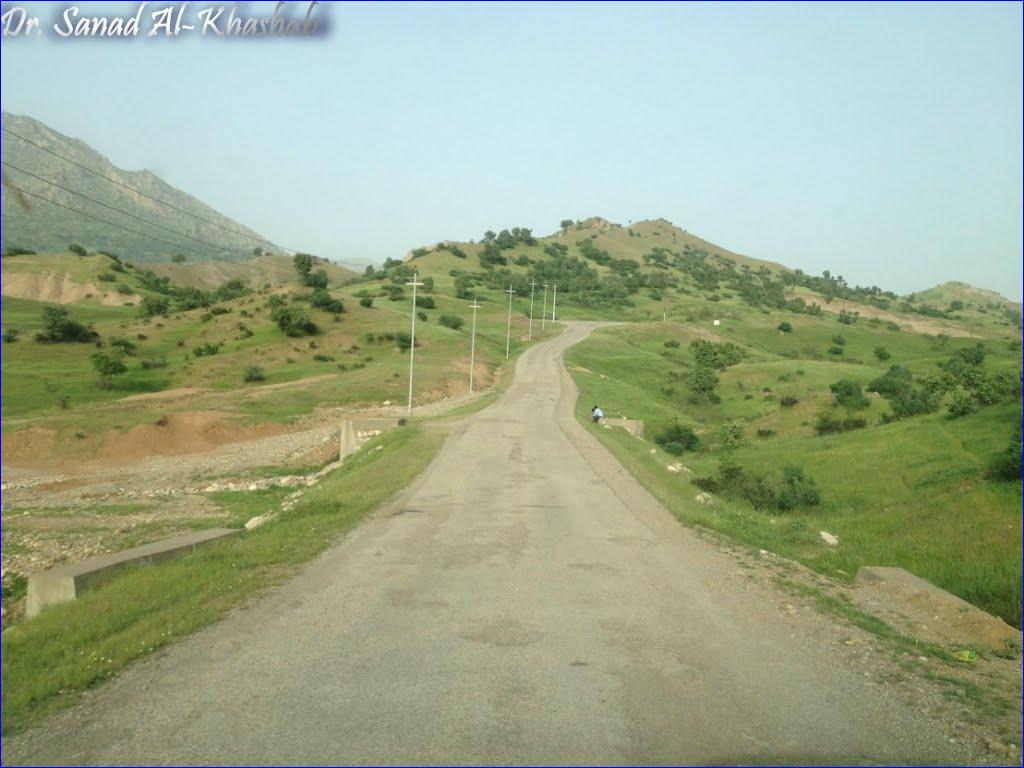 (AINA) -- Local Kurdish authorities in northern Iraq have pursued a quiet but systematic policy of granting Iraqi citizenship and residency rights to large numbers of Kurds, estimated at more than two million, arriving from neighboring countries such as Iran, Turkey, and Syria.
(AINA) -- Local Kurdish authorities in northern Iraq have pursued a quiet but systematic policy of granting Iraqi citizenship and residency rights to large numbers of Kurds, estimated at more than two million, arriving from neighboring countries such as Iran, Turkey, and Syria. (AINA) -- The Assyrian Arts Institute (AAI) is an organization founded by Nora Betyousef Lacey in 2017 and claims to support Assyrian arts. AAI has sponsored a few events since its founding, including an Assyrian women's choir.
(AINA) -- The Assyrian Arts Institute (AAI) is an organization founded by Nora Betyousef Lacey in 2017 and claims to support Assyrian arts. AAI has sponsored a few events since its founding, including an Assyrian women's choir.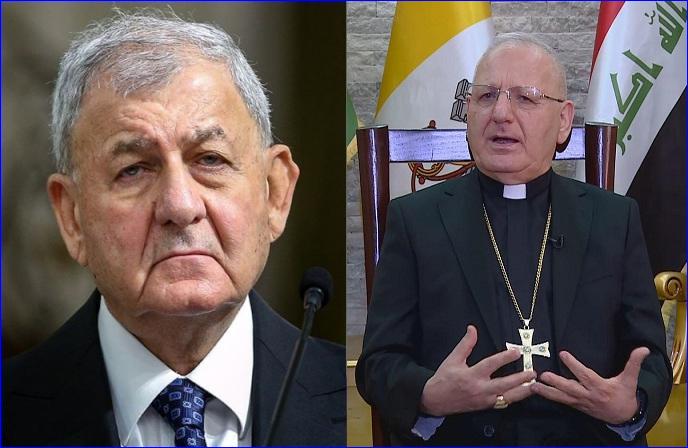 (AINA) -- On July 12 Iraqi president Abdul Latif Rashid repealed the decree recognizing the appointment of Cardinal Louis Raphael Sako as head of the Chaldean Catholic Church and which appointed him to the office of the waqf (وقف), the endowment which oversees all church property. The details of the events leading up to this action are exhaustively covered in this report by MEMRI.
(AINA) -- On July 12 Iraqi president Abdul Latif Rashid repealed the decree recognizing the appointment of Cardinal Louis Raphael Sako as head of the Chaldean Catholic Church and which appointed him to the office of the waqf (وقف), the endowment which oversees all church property. The details of the events leading up to this action are exhaustively covered in this report by MEMRI.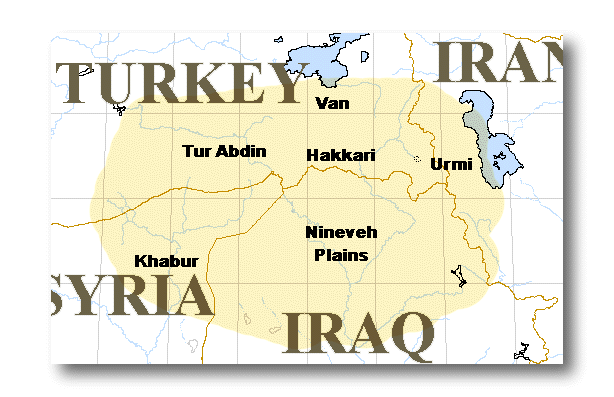 (AINA) -- The use of the term "minority" to describe Assyrians in Turkey and later in Iraq is deeply tied to the political and nationalist agendas of these nations, particularly in the 20th century. While Assyrians are undoubtedly the indigenous people of the land of the two rivers (Mesopotamia), the term "minority" was used to undermine their presence, deny their historical rights, and...
(AINA) -- The use of the term "minority" to describe Assyrians in Turkey and later in Iraq is deeply tied to the political and nationalist agendas of these nations, particularly in the 20th century. While Assyrians are undoubtedly the indigenous people of the land of the two rivers (Mesopotamia), the term "minority" was used to undermine their presence, deny their historical rights, and...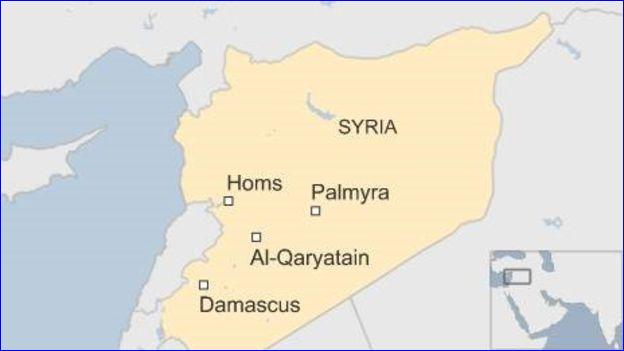 (AINA) -- 'Syria is free'; thus screamed the Syrians as they celebrated the tumbling down of the criminal regime during a whole week. Thousands, even millions, of Syrians strolled the streets of the entire major cities of Syria. They were from all societal segments, strata, trends, genders, religious beliefs and non-religious ones, convictions, sects, confessions, parties, and orientations.
(AINA) -- 'Syria is free'; thus screamed the Syrians as they celebrated the tumbling down of the criminal regime during a whole week. Thousands, even millions, of Syrians strolled the streets of the entire major cities of Syria. They were from all societal segments, strata, trends, genders, religious beliefs and non-religious ones, convictions, sects, confessions, parties, and orientations. Do you worry about things? Do you wake up in the middle of the night, sweating about what might happen to you, to your family, to the world in general? I do. If you do too, rest assured you're not alone. It's a natural human trait, and it's something people have been doing for millennia.
Do you worry about things? Do you wake up in the middle of the night, sweating about what might happen to you, to your family, to the world in general? I do. If you do too, rest assured you're not alone. It's a natural human trait, and it's something people have been doing for millennia.